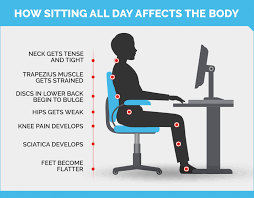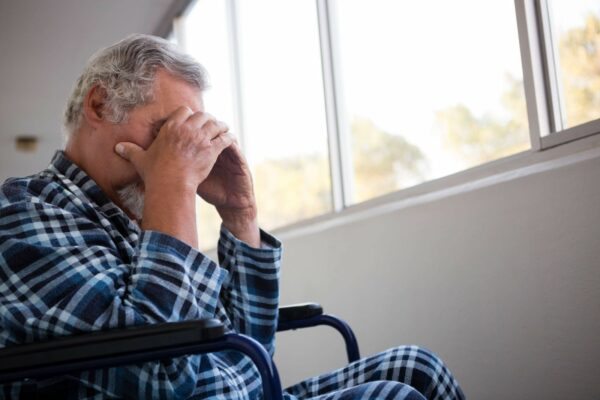The Evidence Behind IOP: What Does the Research Say?
Intensive Outpatient Programs (IOP) have gained attention in the addiction treatment community for offering a balanced approach to recovery that allows individuals to maintain their daily activities while attending structured treatment. But what does empirical evidence say about the effectiveness of IOPs? Let’s delve into the research to gain a more nuanced understanding.
What is IOP?
Before diving into the evidence, let’s briefly discuss what IOP entails. An Intensive Outpatient Program is a treatment option that usually involves multiple sessions per week, focusing on therapy, medication management, and group support. Programs like IOP in Prescott offer the flexibility of maintaining one’s regular life while engaging in substantive, guided treatment.
The Inner Workings of Intensive Outpatient Programs (IOPs)
Think of mental health support as a tapestry, each thread catering to unique needs. Intensive Outpatient Programs (IOPs) stand out, bridging the gap between traditional therapy and more immersive care.
It’s not just weekly sessions; it’s a two to three-hour daily commitment, a blend of individual and group therapies for deeper engagement.
Outpatient therapy is the foundation, while Partial Hospitalization Program (PHP) offers a five-hour daily dive into self-discovery. Inpatient settings provide immediate or residential support for crises or extended healing.
IOPs play a dual role. They’re a proactive step for those teetering towards hospitalization, offering robust support. They also serve as a gentle descent for those leaving intensive care, guiding the transition back to regular life.
In essence, Outpatient Programs are transformative threads, intricately woven into mental health care, offering precise support where needed, fostering resilience on the journey to well-being.
Efficacy of IOP
Studies suggest that IOPs can be as effective as inpatient or residential programs for certain individuals. According to a plethora of research available on the National Institute on Drug Abuse’s addiction treatment page, effectiveness varies based on individual needs, the type of addiction, and the presence of co-occurring mental health conditions.
Intensive Outpatient Programs stand out as a rapid and accessible mental health care option, circumventing the delays associated with traditional outpatient therapy. Their benefits extend beyond accessibility, encompassing affordability with no room and board costs and widespread insurance coverage. Adding to their appeal is the flexibility IOPs offer, allowing individuals to integrate treatment seamlessly into their daily lives. When it comes to effectiveness, a more extended Outpatient Program duration, ideally around 16 days, proves comparable to inpatient treatment, acting as a robust shield against future hospitalization and symptom relapse. In summary, IOPs intricately balance accessibility, affordability, flexibility, and effectiveness, providing a comprehensive and timely approach to mental health care.
Treatment of Opioid Addiction
When it comes to treating opioid addiction, a public health crisis that continues to escalate, IOPs are often considered a vital part of a multi-modal approach. Opioid-specific research from NIDA shows that Medication-Assisted Treatment (MAT) in conjunction with IOP can significantly improve outcomes for those dealing with opioid addiction. The combination of medication to manage withdrawal symptoms and cravings, along with the psychotherapeutic aspects of this program, offers a robust approach to opioid recovery.
Flexibility and Customization
The flexibility offered by IOPs can be beneficial, especially for individuals who have work commitments or caregiving responsibilities. Evidence shows that when a person’s daily life can remain relatively stable, the less disruptive the recovery process becomes, which can aid in long-term success.
An Intensive Outpatient Program (IOP) focuses on intense individual therapy to uncover the truth behind addiction, often tied to underlying issues like trauma. Through counseling and workshops, clients develop coping skills crucial for sustained recovery. The Program offers flexibility, allowing individuals to tailor treatment around work commitments. Therapists design schedules based on a designated number of hours per week, fostering a sense of responsibility. For those unable to commit to residential treatment due to work, IOPs provide a viable alternative. Initiation is as simple as a call to the facility, where a personalized, transformative recovery plan is crafted.
Psychological Components
Psychotherapy is a core part of many IOPs, often involving Cognitive Behavioral Therapy (CBT) and Dialectical Behavior Therapy (DBT). Empirical studies suggest that these therapies can significantly help individuals understand the triggers and thought processes that lead to substance abuse, providing them with coping mechanisms that are invaluable in long-term recovery.
Continuum of Care in Intensive Outpatient Programs
IOPs are frequently utilized as a step-down from more intensive levels of care or as an entry point for those who may not need inpatient treatment. In both cases, research highlights that a continuum of care increases the likelihood of sustaining long-term recovery. The ongoing support, therapy, and medication management found in IOPs create a comprehensive treatment model that addresses multiple facets of addiction and mental health.
The Continuum of Care in Intensive Outpatient Programs is a structured and evolving approach to mental health treatment. It encompasses assessment, admission, and regular therapy sessions, both individual and group, addressing root causes and building coping skills. Psychoeducation and family involvement play key roles, empowering participants with knowledge and support. As individuals progress, the continuum focuses on transition planning, preparing them for the next phase of their recovery. Aftercare support, including ongoing therapy and relapse prevention strategies, ensures sustained progress beyond the active phase. This comprehensive approach ensures a tailored and progressive journey towards lasting recovery and skill integration into daily life.
Limitations of Current Research in IOPs
While there is a lot of promising research, it’s essential to understand that addiction treatment is not a one-size-fits-all scenario. There are gaps in research concerning specific populations, long-term outcomes, and the treatment of co-occurring mental disorders. However, the available evidence does point to the efficacy of IOPs as a valid treatment option for many.
- Long-Term Understanding Gap: We’re missing insights into how effective IOPs are over a longer stretch.
- Diverse IOP Landscape: IOPs come in all shapes and sizes, making it tricky to say what works universally.
- Picky Participant Pool: The folks in these studies often choose to be there or get nudged by their providers, which might not mirror the whole picture.
- Rigorous Research Rarity: There aren’t many top-notch studies, with the gold standard RCTs being a bit of a unicorn.
- Mixed Bag of Measures: Each study uses its own yardstick, making it a challenge to compare results.
- One-Size-Fits-Not-All: Studies often feature a specific crowd, leaving out the rich tapestry of diverse experiences.
- Missing the Full Picture on Co-occurring Issues: When it comes to IOPs, we’re mostly looking at solo struggles, not those juggling multiple challenges.
- Real-World Hiccups: The nitty-gritty of how IOPs play out in everyday life might not be fully captured in the research scene.
Concluding Thoughts: Unpacking the Evidence
The Intensive Outpatient Program stands as a viable treatment option supported by a growing body of evidence. Whether it’s the flexibility, the multi-modal approach, or the opportunity for personalized treatment, IOPs offer a meaningful pathway to recovery for many. As our understanding of addiction evolves, it’s crucial to continue studying the role and effectiveness of IOPs to ensure they meet the diverse needs of individuals in their unique recovery journeys.








